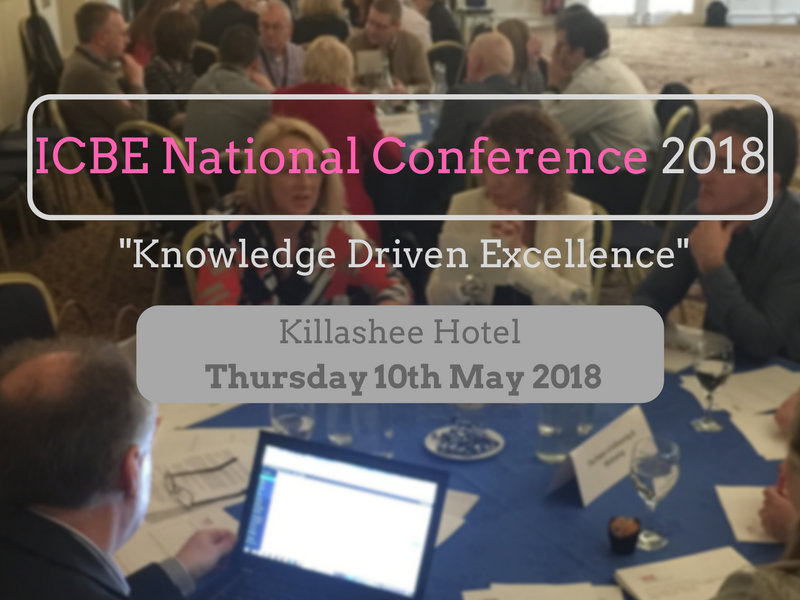 Paul Aherne, Ascend Associate started his presentation on ‘(r)Evolution of Performance Management’ with an overview of Performance Management,
Paul Aherne, Ascend Associate started his presentation on ‘(r)Evolution of Performance Management’ with an overview of Performance Management,
Performance Management has been with us for almost 100 years, evolving over time from its origins in a US military ranking approach equating employee’s performance with individual inherent capabilities and largely ignoring individual’s capability to grow. GE popularised this forced ranking approach and used performance appraisals to hold employees accountable and allocate rewards.
Synopsising the area he added “Performance Management is a process by which organizations align their resources, systems and employees to strategic objectives and priorities to enable them to achieve results.”
As such, Performance Management can be regarded as Critical Strategic Business Process and a Pillar of Business Excellence.
However according to Mr Aherne current data suggests:
- 50% of executives believe that current performance management process is not an effective use of anyone’s time.
- 3% said it delivers exceptional value.
- Less than half (45%) of employees feel performance review helps them improve their performance.
- The average manager spends more than 200 hours a year on activities related to performance reviews.
Sources: Deloitte Consulting: Global Human Capital Trends Report 2014/2015 CEB Global: Performance Management Survey 2014, World at Work Survey, 2016.
“They are scary numbers for a strategic business process” said Paul commenting the poor ratings.
Reflecting these statistics Mr Aherne commented that Senior Leaders are questioning performance management in terms of:
- Effectiveness
- Efficiency
- Value for money
- Impact on motivation and morale
Highlighting the current status of sector Mr Ahern said “You could conclude that performance management is either completely broken or in need of radical change. Are continued evolutions or radical revolution required to meet the needs of a changing work environment and a changing workforce.”
However several companies are making radical changes in performance management leveraging a philosophical approach based on:
- Creating approaches to follow natural cycle of work, provide feedback, coaching and guidance as projects finish, milestones are reached and challenges pop up. Providing feedback when it is relevant, allowing people to solve problems in current performance whilst also developing skills for the future.
- Spending time focussed on enabling future performance rather than retrospectively looking back at past, fostering team work rather than individual accountability.
- Coaching and developing people to be successful.
- Motivating people to perform for their personal growth and sense of progress.
Reflecting the world of continuous change Mr Aherne highlighted some innovative practices including:
- Abandoning the Annual performance review cycle.
- Removing individual performance ratings.
- Releasing the focus on evaluation and appraisal.
- Simplifying the process supported by tools and technology (going digital to encourage real time structured growth, crowd sourced and social feedback; gamification).
- Changing the link between pay and performance.
- Integrating into way we work (Business Owned Process).
- Connecting between organisation purpose and performance to enable a high-performance culture.
Mr Aherne had some solid advice for attendees suggesting that in order to spark a performance revolution in their companies they should consider:
- Creating clarity regarding the purpose of Performance Management. Know what you want to achieve, why and how.
- Clarifying this purpose for everyone in your organisation.
- Developing a simple, agile process aligned with natural flow of work in your organisation.
- Leveraging a customer centric deisgn approach to create experiences employees love.
- Setting expectations regarding frequency of managers and employees talking about goals, clarity, performance and development.
- Investing in skills of people managers to clarify and provide feedback well.
- Spending less time on formal meetings, forms, processes and reinvesting time in less formal conversations focussed on clarifying and developing.
- Measuring desired outcomes regularly (for example: “I am clear what is expected in me in my role; I know how my objectives relate to the organisations; I know how I am performing; I know what I need to do to create more impact; my manager supports me in performing in my role)
He also had some strong advice to spark personal/individual high performance mindset, reminding attendees that they perform at your best as an individual when:
- There is a clear outcome you are driving towards
- You are motivated from within (intrinsic)
- You feel competent to do it but it is challenging
- You get feedback and support on the journey
- You review progress and consciously learn
- You have clarity on whether you achieved it
- You feel connected to those you are working with
Mr Ahern finished his presentation with a challenge to the delegated asking them to question:
Is your Performance Management Approach delivering value for you, your teams, your company?
How would you know if it was?
What could you do to spark your own high performance revolution:
- In your organisation
- As an individual employee
- As a People Manager
